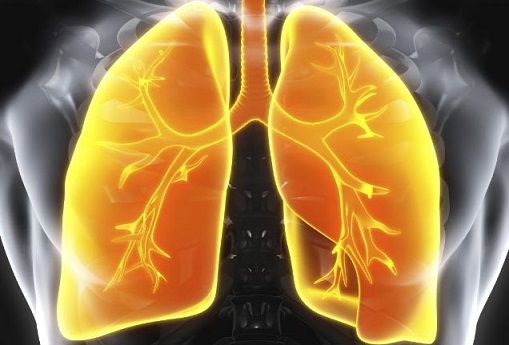Nikhil Prasad Fact checked by:Thailand Medical News Team Jul 15, 2024 1 year, 6 months, 1 week, 3 days, 20 hours, 17 minutes ago
COVID-19 News: As the world continues to grapple with the aftermath of the COVID-19 pandemic, a new study sheds light on lingering lung problems faced by survivors. This
COVID-19 News report explores research conducted by scientists from Cochin Hospital and University Paris Cité in Paris, France, focusing on how COVID-19 affects lung function even months after recovery. The study provides crucial insights into why some people continue to experience breathing difficulties long after their initial illness.
 Doctors warn that most exposed to COVID-19 have dysfunctional lung gas exchange.
The Research Team and Their Goals
Doctors warn that most exposed to COVID-19 have dysfunctional lung gas exchange.
The Research Team and Their Goals
The research team, comprising Dr Thông Hua-Huy, Dr Hà Pham-Ngoc, Dr Frédérique Aubourg, Dr Nicolas Roche, and Dr Anh Tuan Dinh-Xuan, aimed to understand the specific ways COVID-19 disrupts lung function. Their study, which measured lung gas transfer in 118 patients who had recovered from COVID-19. By comparing these patients to a control group of healthy non-smokers, the researchers sought to decipher the underlying causes of persistent lung issues in COVID-19 survivors.
Key Findings: Persistent Lung Damage
One of the significant findings of the study is that even patients with mild COVID-19 showed signs of impaired lung function. This was determined by measuring the diffusion capacity for nitric oxide (DLNO) and carbon monoxide (DLCO), which indicate how well gases pass from the lungs into the blood. Surprisingly, patients with mild cases of COVID-19 had decreased lung gas transfer capabilities, suggesting that lung damage from the virus is not limited to severe cases.
Detailed Results: Severity and Lung Function
The study grouped patients based on the severity of their initial COVID-19 infection - mild, moderate, and severe. Key findings include:
-Mild Cases: Patients had normal lung volumes but impaired gas exchange, with significant decreases in DLNO, DLCO, and other related measures compared to the control group.
-Moderate Cases: These patients showed more pronounced impairment in lung function. Both lung membrane conductance (DM) and pulmonary capillary volume (VC) were affected, indicating damage to both lung tissues and blood vessels.
-Severe Cases: Patients with severe initial infections had the most significant lung function impairment, with marked reductions in all gas transfer parameters.
The Science Behind Lung Damage
To understand why COVID-19 survivors experience these issues, it's essential to know how the virus affects the lungs. The researchers found that damage to the alveolo-capillary membrane, which is crucial for gas exchange, persists long after the acute phase of the infection. This damage results in reduced membrane conductance and abnormal pulmonary vascular capacitance. In simpler te
rms, the lungs' ability to transfer oxygen into the blood and remove carbon dioxide is compromised.
The Role of Pulmonary Vascular Injury
The study highlighted the critical role of pulmonary vascular injury in long-term COVID-19 symptoms. This type of injury was evident even in patients who did not have severe disease initially. By examining the ratio of DLNO to DLCO, the researchers could distinguish between damage to the lung's air sacs and its blood vessels. This ratio was significantly higher in patients with moderate and severe COVID-19, pointing to ongoing vascular problems.
Implications for Treatment and Recovery
These findings have important implications for the treatment and management of long-term COVID-19 symptoms. Early detection of lung function impairment could lead to better outcomes for survivors. The researchers suggest that monitoring lung function, even in patients with mild initial infections, is crucial. This approach can help identify those at risk of developing long-term issues and guide appropriate medical interventions.
Conclusion
The study by Hua-Huy and colleagues offers valuable insights into the long-term impact of COVID-19 on lung function. It underscores the need for ongoing research and monitoring to help COVID-19 survivors recover fully. By understanding the specific ways the virus affects the lungs, healthcare providers can develop better strategies to support patients in their recovery journey.
The study findings were published in the peer-reviewed Journal of Personalized Medicine.
https://www.mdpi.com/2075-4426/14/7/738
For the latest
COVID-19 News, keep on logging to Thailand Medical News.
Read Also:
https://www.thailandmedical.news/news/breaking-study-shows-that-one-third-of-post-covid-individuals-who-had-mild-symptoms-have-impaired-lung-function
https://www.thailandmedical.news/news/irrespective-of-severity-40-percent-of-post-covid-pneumonia-patients-still-have-impaired-lung-diffusion-and-22-percent-developed-lung-fibrosis-a-year-
https://www.thailandmedical.news/news/dutch-study-shows-that-25-percent-of-individuals-who-contracted-covid-19-have-impaired-pulmonary-function-after-a-year-of-disease-onset
https://www.thailandmedical.news/news/breaking-covid-news-study-shows-that-there-is-no-recovery-from-mild-covid-19-induced-lung-function-damage-even-after-two-years
https://www.thailandmedical.news/news/44-4-percent-of-indians-exposed-to-sars-cov-2-suffer-from-post-covid-lung-damage
https://www.thailandmedical.news/news/spanish-study-shows-persistent-pulmonary-abnormalities-even-at-18-months-after-sars-cov-2-pneumonia
https://www.thailandmedical.news/news/post-covid-individuals-can-continue-to-suffer-from-exercise-ventilatory-inefficiency-34-months-after-hospital-discharge
